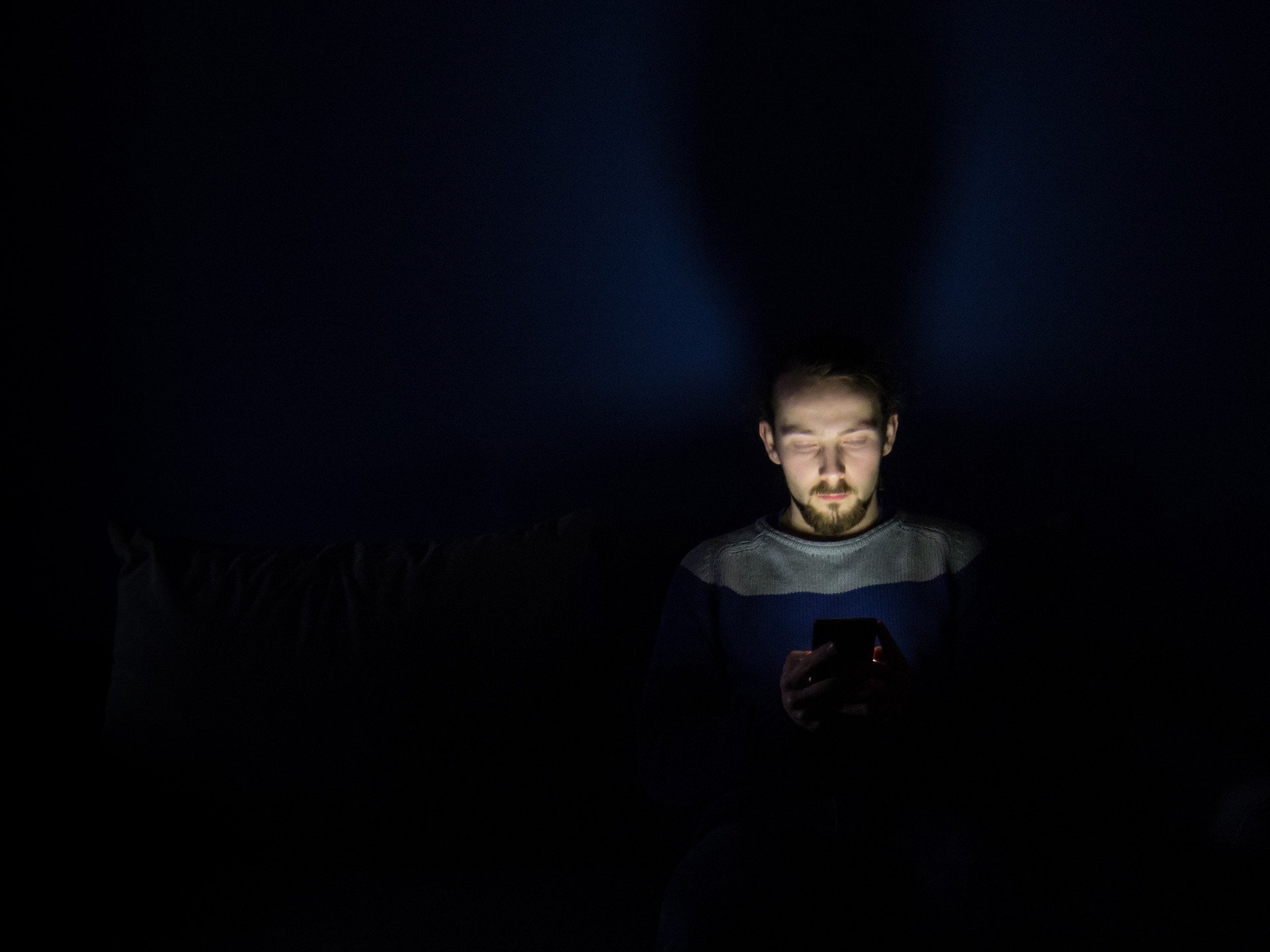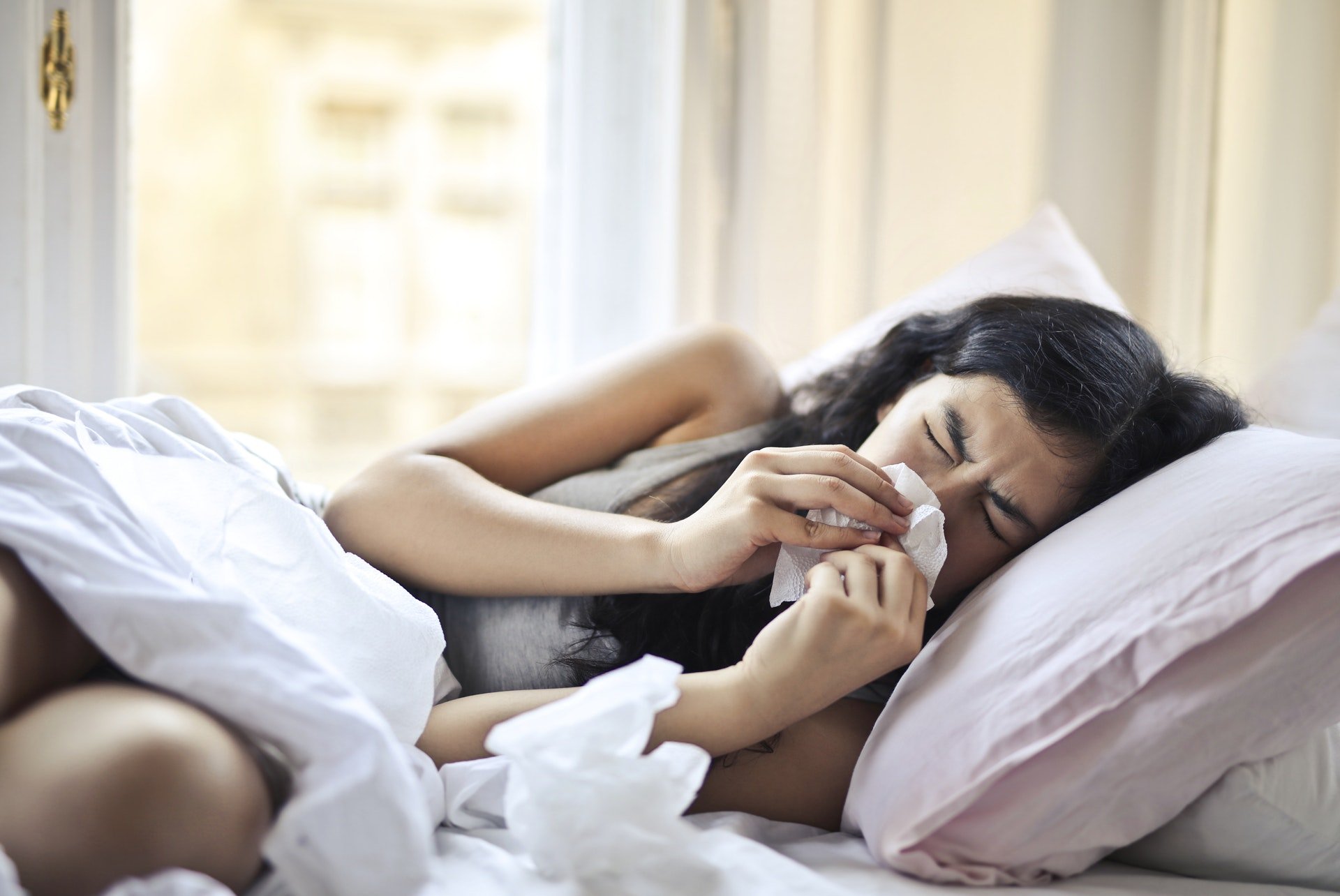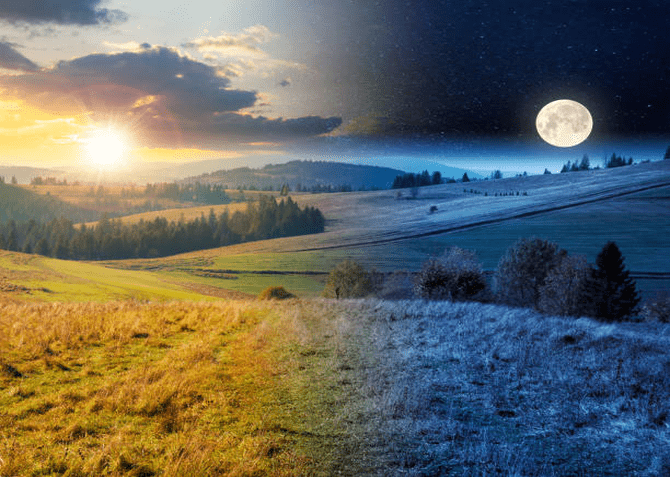
Blue light: Is it really harmful to sleep?
Smartphones are a big part of our lives. We use them to watch videos, catch up with friends, and play games. But, with 37% of adults admitting to checking their smartphone five minutes before going to bed (Ofcom), it's clear we can sometimes find it difficult to pull ourselves away. But what effect is this having on our sleep, and is it really as bad as people say?
What is blue light?
Our phone, laptop, tablets, LED television screens and fluorescent bulbs all emit an artificial form of blue light, which has the shortest wavelength on the spectrum of visible light, meaning it produces more energy than other light waves.
But, did you know that the sun is a natural source of blue light? It's been around since the universe began, so surely it can't be that bad for us, can it? Humans need the natural light from the sun to stay happy, healthy, and keep our circadian rhythm in check. That means blue light is vital for our bodies to be able to tell the difference between night and day, so we know when we need to be awake and when to stay asleep.
What are the effects of blue light?

Although blue light during the day can be healthy for our sleep schedule, it's blue light at night you should be mindful of. That's because being in front of your screen can trick your brain into thinking it's still daytime. As a result, your brain produces less melatonin — the sleep hormone — so your body will fight to keep itself awake and you might find it harder to drop off as a result.
But it might not just be the blue light that's keeping people awake. When you're on your phone, it's likely that you're doing things like reading emails or scrolling through social media. These activities can cause a lot of activity in your brain, which means it'll take longer for you to fully switch off when you do put your phone down for the night.
How to prevent blue light from ruining your sleep
If you're worried about the effects blue light is having on your sleep, there are a few things you can do to help:
Wake up earlier
A study conducted by researchers at the University of Groningen has shown that exposure to blue light earlier in the day can make the effects of late-night blue light less dramatic. This means getting up early and going outside could make you less sensitive to the light from your screen, and you could find it easier to fall asleep at night. So, consider setting your alarm an hour earlier, or going for a morning jog to help wake yourself up.
Blue light glasses
Blue light glasses (also called computer glasses) contain yellow-tinted lenses that reduce the amount of blue light that enters your eyes. A study conducted by researchers at the University of Toledo to test the efficiency of amber tinted lenses found that participants using the glasses up to three hours before bedtime reported a better quality of sleep compared to the control group.
Night shift mode
Alternatively, most smartphones now come with a night shift mode that adjusts the light from your screen into a warmer, yellow/red light, which is less disruptive to your sleep patterns. If your phone doesn't have this setting, you can download blue light limiting apps like F.lux and Iris, which can do the same thing.
Similarly, some phones and social media platforms have the option to invert their colours. Using this setting means you can convert the image to a black background with white text, rather than a white background with black text, which can also help to limit the amount of blue light you're exposed to at night.
Limit screen time
Of course, no method is as effective as completely avoiding blue light before bed and, ideally, you should be limiting your phone usage an hour before your head hits the pillow, according to The Sleep Council. If you find that this is a challenge, consider doing something else to relax your mind and take your focus away from your phone, like reading. You could even move your phone into a different room to make sure you're not checking it throughout the night and waking yourself up more.
Blue light can help to keep your circadian rhythm in check. But too much exposure to it just before bed can have some negative effects on your sleep cycle. However, these tips can help you reduce the impact of blue light on your sleep, and you could be in for a more restful night. For more expert sleep tips, take a look at the rest of our blog, as well as our advice centre.








Leave a Reply